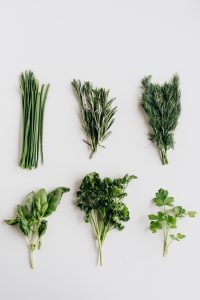 Most people think of sex hormones when they see articles on how to balance your hormones. However, sex hormones aren’t the only hormones that get out of balance and affect your health and well-being. While perimenopause and menopause can definitely cause a hormone imbalance, there are other hormones that also do. Hormones regulate a lot of processes, which include the sleep cycle, metabolism, appetite, mood, stress levels and even body temperature. Even slight changes in insulin, androgens, thyroxine, cortisol or estrogen can trigger a problem. You can use herbs to help them get back into line.
Most people think of sex hormones when they see articles on how to balance your hormones. However, sex hormones aren’t the only hormones that get out of balance and affect your health and well-being. While perimenopause and menopause can definitely cause a hormone imbalance, there are other hormones that also do. Hormones regulate a lot of processes, which include the sleep cycle, metabolism, appetite, mood, stress levels and even body temperature. Even slight changes in insulin, androgens, thyroxine, cortisol or estrogen can trigger a problem. You can use herbs to help them get back into line.
There’s a reason that holy basil got its name.
You probably have eaten food with sweet basil in, but may not have experienced holy basil. It’s not like sweet basil or cinnamon (Thai) basil, it’s hot and bitter and while occasionally used in Asian cooking, more often used for health benefits. It’s used frequently in Ayurveda medicine and is known as the queen of herbs. It’s an adaptogen, which means it helps the body get back to normal. It’s especially useful for balancing cortisol, the hormone of stress, and helps manage the adrenal glands to help you feel more relaxed and even boost your energy level.
Marjoram is a relative of oregano and good for people with polycystic ovarian syndrome—PCOS.
What is PCOS? It’s a disorder that causes the body to produce abnormal levels of hormones. It especially effects women who are of reproductive age. Studies show that drinking marjoram tea twice a day for a month can help improve blood sugar levels and help manage fasting insulin levels. It’s been used to help improve other types of hormonal imbalances, but there’s still minimum studies on the safety of using it a lot on a long term basis. It influences the cortisol and estradiol—an estrogen steroid hormone—production, too.
Nigella seeds can also help balance hormones.
There are several names for the Nigella sativa. Some call it fennel flower or kalonji. It has a compound in it known as thymoquinone and may also help women with PCOS. In animal studies, it’s shown to be effective in aiding the regulation of insulin, thyroid, testosterone and luteinizing hormones that are responsible for ovulation. It acts much like estrogen in the body, which is why it’s often used for hormone replacement therapy during menopause. In fact, it’s often marketed as black cumin seeds or just black seed. Don’t mistake it for regular cumin. They’re very different.
- Indian ginseng, also called winter cherry or ashwagandha, is used for supplements, teas and powders. It can help neutralize a chronic imbalance of cortisol. There are more studies that show it may help with thyroid-stimulating hormones and reproductive hormones.
- Black cohosh comes from the root of the buttercup family. It’s often used in dried capsule form. Even today, it’s used for menstrual irregularities and may act as a phytoestrogen, a plant substance that acts like estrogen.
- Even though it’s not an herb, drinking green tea may help. It’s good for balancing insulin and can improve the body’s response to other hormones.
- Licorice, the real licorice from the root of the plant from Asia or Europe, not the anise oil contained in many licorice products, has been used for centuries to help relieve menstrual cramping and can reduce both the intensity and frequency of menopausal symptoms, like hot flashes.
For more information, contact us today at Next Level Fitness
